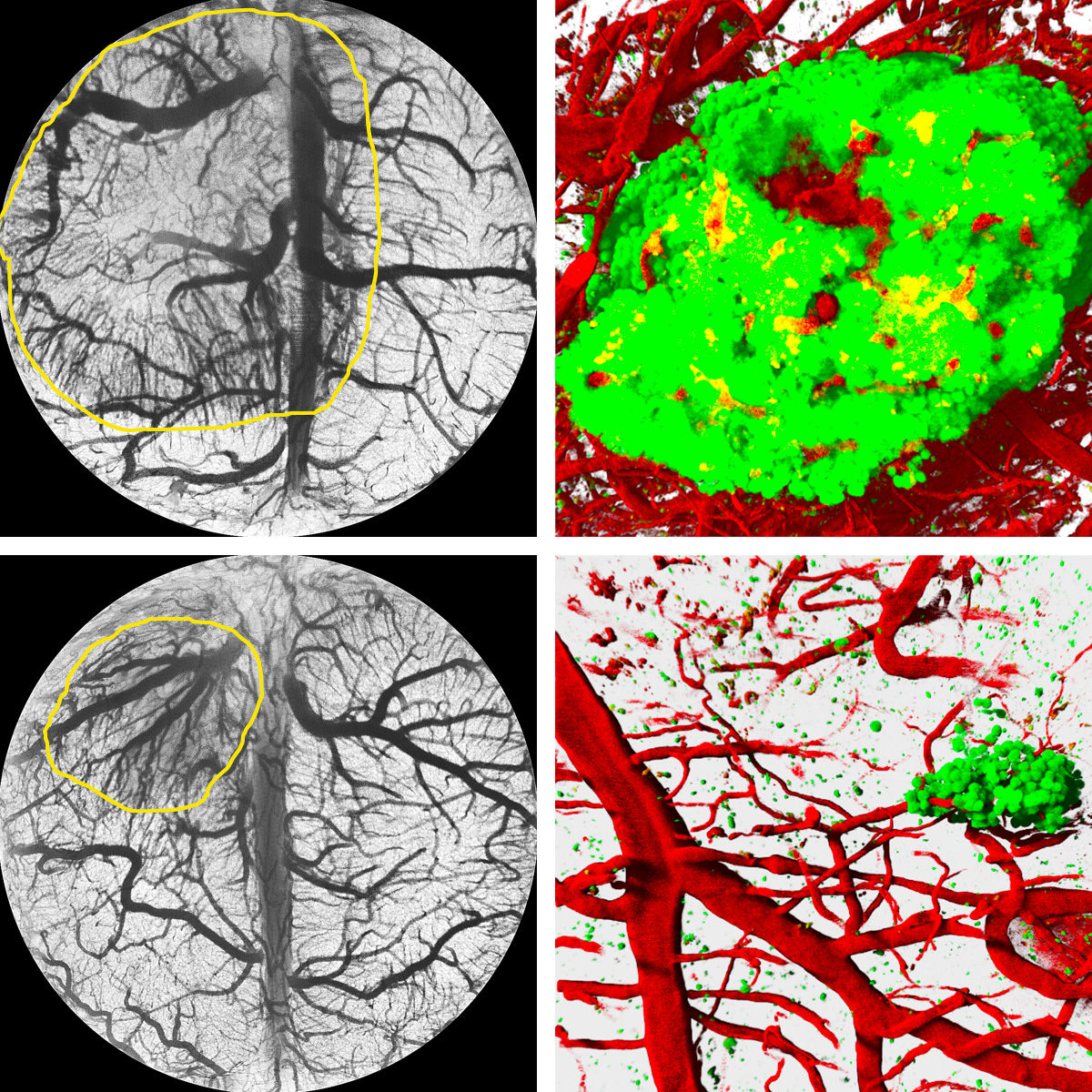
Molecular profiling has identified various subtypes of the brain cancer ependymoma (EPN), including a supratentorial EPN (ST-EPN) driven by the oncogenes ZFTA–RELA and EPHB2. But little is known about the immune system’s role in EPN progression and response to therapy. Researchers led by Ludwig Harvard’s Rakesh Jain used an immunocompetent mouse model of ST-EPN-ZFTA to explore this aspect of EPN and identify potential drug targets for the cancer. Gene-expression profiling of these tumors, and analysis of a human EPN tumor dataset, revealed several protein kinases that could be targeted for therapy. Building on these findings, the researchers found that dasatinib, an FDA-approved leukemia drug with broad-spectrum inhibition of protein kinases, suppressed EPN growth in culture and in mice. They reported in a January publication in PNAS that dasatinib potently inhibits the growth of this type of EPN in their mouse models. The inhibitor, they discovered, reprogrammed pro-tumor tumor-associated macrophages (TAMs) into an anti-tumor state and boosted the activation of cytotoxic CD8+ T cells that kill cancer cells. The treatment induced complete regression of established EPN tumors of this subtype in 78% of the mice and prevented tumor recurrence. Depleting T cells abrogated the therapeutic effect, showing anti-tumor immunity is central to the tumor regression induced by dasatinib.
Targeting EPHB2/ABL1 restores antitumor immunity in preclinical models of ependymoma
PNAS, 2025 January 22
